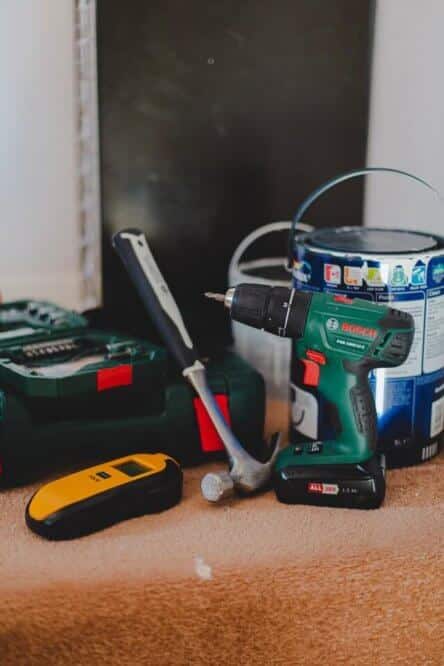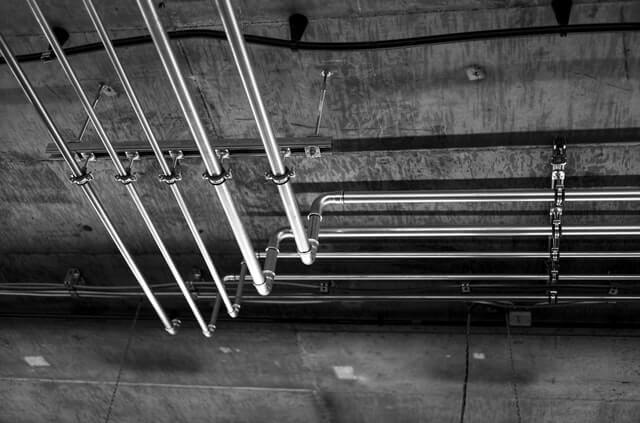How long do copper pipes last? While this probably isn’t something you think about, it’s still an important question. You’d be surprised to know that there is no straightforward answer to this question. There are many types of copper pipes out there, and each has a different lifespan. Still, knowing when to replace copper pipes is essential for every homeowner.
If you wanted to know how long do copper pipes last, you’re in the right spot. Here is everything you need to know.
Types of Copper Pipes and How Long They Last
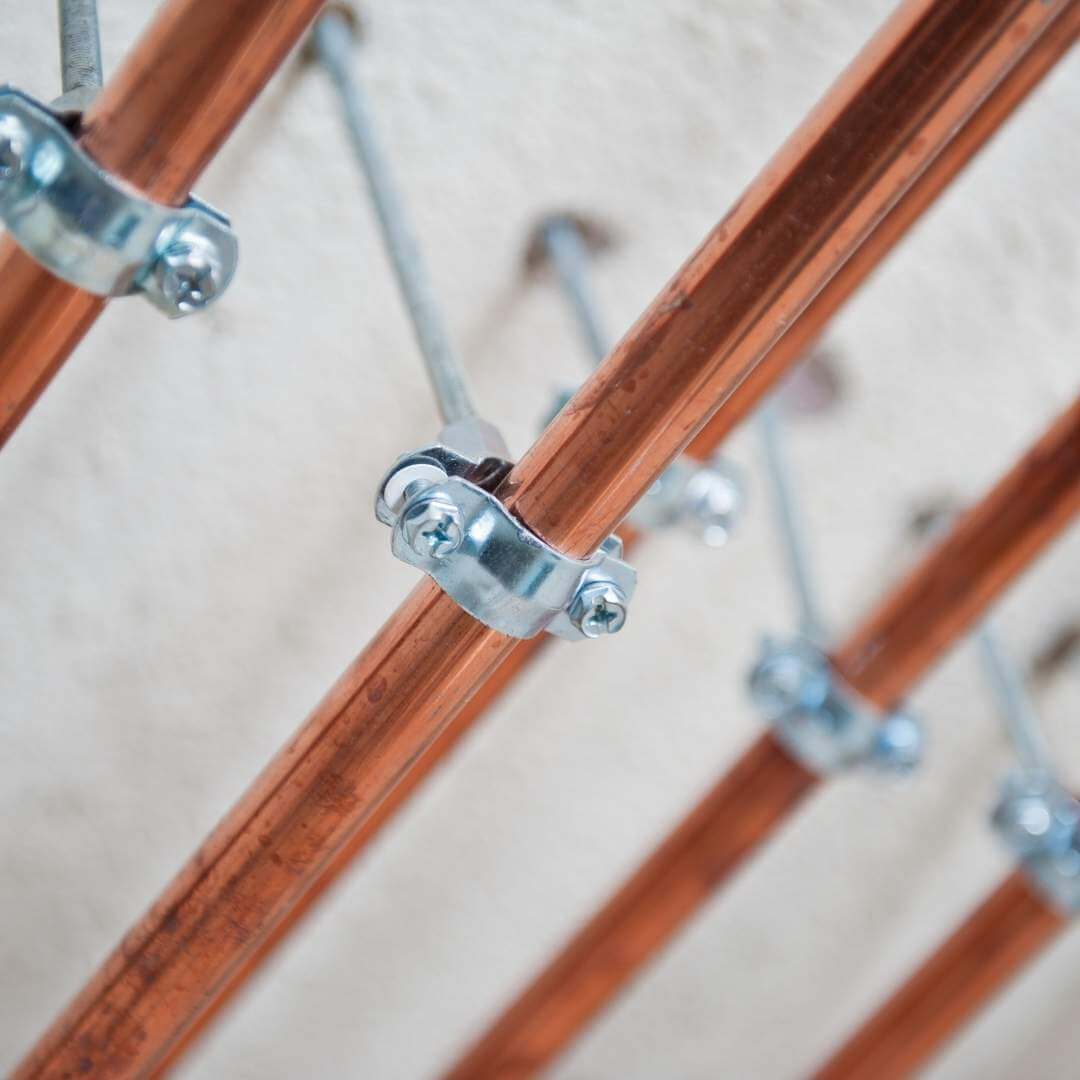
It is difficult to say for sure how long do copper pipes last. This is because every type of copper pipe is unique and has its own life span.
There are three common types of copper pipe:
- M-Type
- L-Type
- K-Type
Here are short summaries of all types and how long they last.
M-Type
M-Type copper pipes are the thinnest of the three. People mostly use them for residential plumbing. While their life span is officially 50 years, this usually isn’t the case.
So, when it comes to the M-Type, how long do copper pipes last? Believe it or not, this is often no longer than 20 years. This is because people expose them to too much acidic water.
Acidic water will speed up their corrosion – and as they are thin, they tear rather quickly. This is why some copper pipes don’t last for too long.
So, acidic water is one of the reasons these pipes don’t last for too long, but it isn’t the only one. Most residential buildings have fragile M-Type lines, as these are the least costly. However, this makes them more sustainable to wear-and-tear damage. Later on, this will lead to cracks that you can’t easily prevent.
Especially since you can’t control the water’s pH value in your area as the city decides this. Even if you use well water, you can’t be sure how balanced its pH levels are. This can wear down M-Type pipes very fast. Acidic water is the main reason why they rarely last as much as they’re supposed to.
L-Type
L-Type copper pipes are thicker but also more expensive. Still, some homeowners prefer using them over M-Type lines as they are more durable. Just like the M-Type, L-Type’s life span is approximately 50 years.
However, they usually last much more than this. Some L-Type pipes can last for more than 100 years! While you’ll invest more money in them, this should give you some peace of mind. They are of high-quality and will last for a very long time, even if your water is acidic.
L-Type pipes are a great choice if you don’t want to replace your plumbing system for probably your entire lifetime. While M-Type lines fit most areas’ building code, this isn’t the case in every state.
Because of this, using L-Type is even mandatory in some places. As this is a safer, more durable option, it’s probably for the better. Sometimes it’s better to pay a bit more, but be sure of an item’s quality – especially when your home’s at stake.
K-Type
K-Type pipes last 100 years or more. They are the thickest copper pipe type so that you won’t see them in many residential areas. Builders use them for cities’ water mains and some industrial plumbing systems. They can withstand high water pressure, and they will seldom crack. In fact, they are so strong you don’t really need them at your home.
Not to mention they are very expensive. All of this doesn’t make them the right candidate for residential plumbing, despite their long life span.
Overall, they could last from 20 to 100 years or even more for residental use. It all depends on copper pipe type and maintenance. In some cases, lifespan could be shorter because of acidic water.
Can Copper Pipes Rust and Will This Impact Their Life Span?
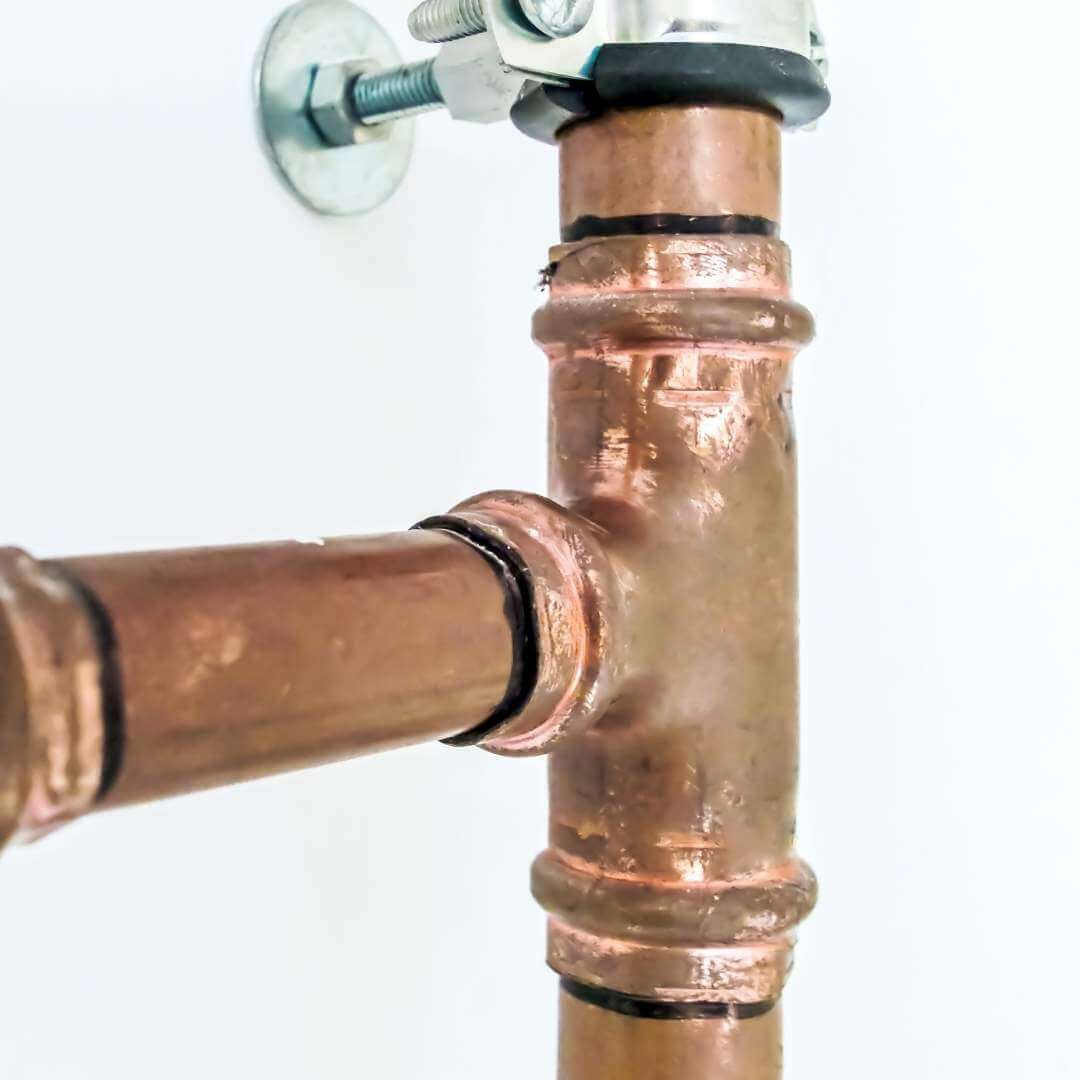
There is a saying that copper pipes don’t rust and that this makes them the best option for residential plumbing. The truth is, while copper is more resistant to rust than iron or steel, it can still corrode. Why does this happen, and how to know your pipes are corroded?
When they corrode, copper pipes turn green or, rarely, black. This green tint is the patina, which is basically the same as red rust on iron. The patina’s chemical components turn the upper layer of copper green, and this is that tint you may notice. Yes, this is the same process that makes your vintage copper jewelry change color.
Unpolluted water will rarely cause copper to rust. However, the chances of having entirely clean water in your pipes are next to nothing. Also, the air in combination with water will make copper oxidize, and this is something that you can’t affect. Tap water is filled with many components that are bad for copper, such as:
- Oxidizing acids
- Heavy-metal salts
- Ammonia
- Sulfur
All of these can cause corrosion on copper pipes. The well water usually contains a much higher amount of these components, so it is more likely to cause patina. Still, even civic water contains these materials to a certain extent. This is why all copper pipes can corrode.
So, how long do copper pipes last once there is a patina on them?
Patina itself isn’t dangerous for pipes. In fact, it can even create a protective layer that keeps the pipe safer from external damages. The problem is that when you have patina, you most likely have a leak somewhere. As you can imagine, leaks are never a good thing.
Will Pinhole Leaks Shorten the Pipe’s Lifespan?
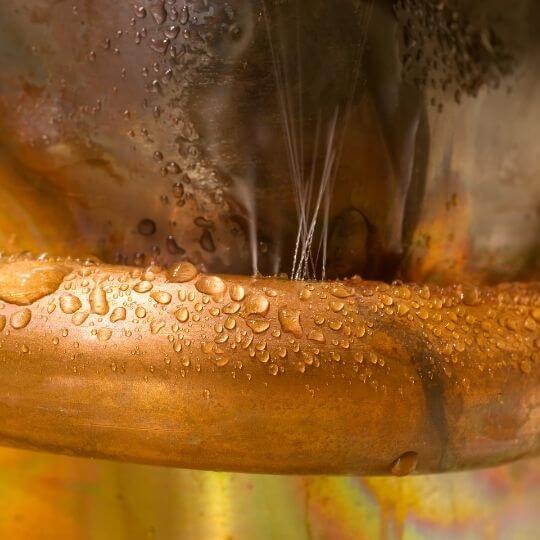
Most corrosion starts from pinhole leaks. These leaks on their own seemingly don’t cause too much damage. However, if you don’t fix them as soon as possible, you’ll have a huge problem.
There are two types of corrosion in copper pipes:
- Galvanic corrosion, which occurs when the plumber connected your copper line with an aluminum or steel pipe. This is something that they shouldn’t do, but it can happen. Copper and steel or iron create a galvanic reaction, which results in corrosion and the creation of patina.
- Pitting corrosion, which occurs when the pipe gets in contact with bromide ions, chloride, or hypochlorite. It’s one of the most usual types of corrosion plumbers deal with
When left untreated, both types of corrosion will thin the pipe, shortening its life span. As many factors influence the creation of corrosion, it’s impossible to state how long do copper pipes last precisely.
What Causes Copper Pipes To Leak?
Everything starts in a very small area that you usually can’t spot easily. Starting from there, it will slowly weaken the copper pipe’s surface. Finally, tiny leaks will show up – this what creates pinhole leaks. You may not notice these leaks for months, sometimes even years. However, over time, they will damage the entire construction of your home. As a result, mold and mildew will appear. You may also notice some other plumbing issues, such as:
- Water stains
- Low water pressure
- Green or blue tint in the water
Any type of leak is dangerous, and only a professional can truly fix them. This is why you shouldn’t delay calling a local plumber who will deal with this issue. Otherwise, you may just end up with more significant costs.
Can You Prolong the Life of Copper Pipes?
Believe it or not, you can prolong the life of your plumbing with some simple habits.
How long do copper pipes last highly depends on your water usage, as well as your care.
According to the US Department of Energy, an average person uses between 80 and 100 gallons of water daily. This is a lot of work for your pipes. The more water goes through them, the more touch the copper has with impurities. Here are a few things you could do to ensure your lines last as long as possible.
Know How to Turn Everything Off
In case of a pipe burst, the first thing you should do is turn off the main valve. To do so, you need to know where it’s located. When such a hazard happens, people panic. You have to ensure you know how to deal with everything calmly. This will not just keep your house safe, but it will also keep the rest of your plumbing from failing.
Don’t Waste Too Much Water
Having water-wise habits is useful for many reasons. One of them is that it makes your pipes last longer. There are a few ways you can do this:
- Avoid clogs
- Avoid harsh chemicals
- Wait at least ten minutes between showers to equalize water pressure
- Never let the water run for too long
- Caulk everything
- Maintain washing machine hoses
Watch What You Dispose Of And Where
People toss a lot of things into the toilet that they really shouldn’t. The same goes if you have a garbage disposal. Both of these holes can’t deal with everything you toss into them – literally. Anything that can cause clogging should go into the trash can. Some of the items you shouldn’t throw into a toilet bowl even though you think you can are:
- Napkins
- Menstrual products
- Paper packaging
- Chunks of food
Similarly, some of the things that shouldn’t go into the garbage disposal are:
- Bones
- Eggshells
- Fibrous foods
- Potato peels
Monitor Your Water Pressure
Builders don’t make residential pipes to be able to hold too much pressure. This is why it’s always a good idea to monitor the water pressure inside your home. Ideal water pressure is between 40 and 85 psi. Anything above that puts your plumbing into too much stress. This will shorten their life span, and you’ll probably have to re-pipe in no time.
Regular Maintenance
You should regularly maintain your entire plumbing system, not just deal with the damage. Have regular sewer maintenance. If you have a septic system, have a professional examine it every six months. Disconnect all outdoor hoses in the fall and winter. This will keep your copper pipes running smoothly, and they’ll last longer.
Contact Your Plumber if You Have Corrosion
This is the most crucial step in keeping your copper pipes healthy. Although this isn’t a rule, most of the time, corrosion is caused by some kind of a leak. This is why it’s important not to hesitate and call a plumber as soon as you notice corrosion. Even if you don’t think you have a serious issue, it’s better to be safe than sorry. A minor leak can rapidly turn into a flooded basement. Not only will this cost you a lot more, but it can also further damage your home.
Bottom Line
How long do copper pipe lasts depends on many things. Some, such as water pH level or pipe’s thickness, you can do nothing about. However, there are a lot of things you can do that can help your pipes last longer. Maintaining your lines will ensure your plumbing system runs smoothly. Otherwise, expect some costly repairs in the near future. And don’t forget to contact a professional if you suspect your pipes are leaking.

Michael Davis is a heating & plumbing expert who currently works as independent contractor in SC. He also writes for Plumbertip.
For almost 10 years he worked on various plumbing tasks across South Carolina.
